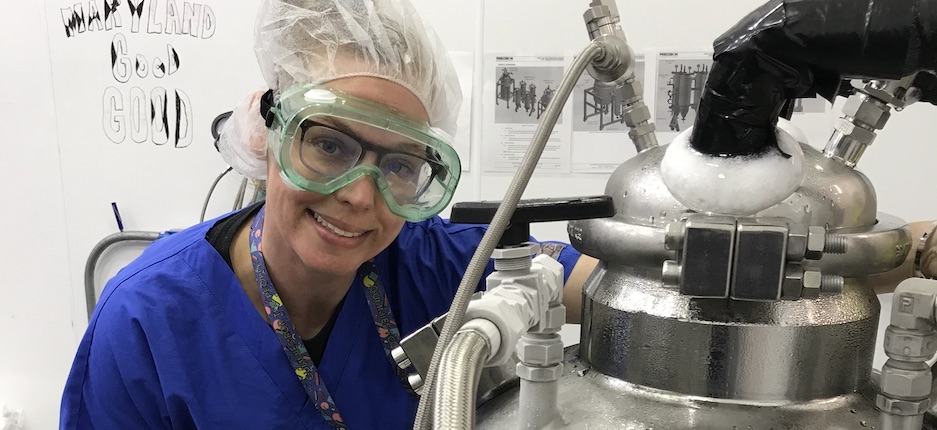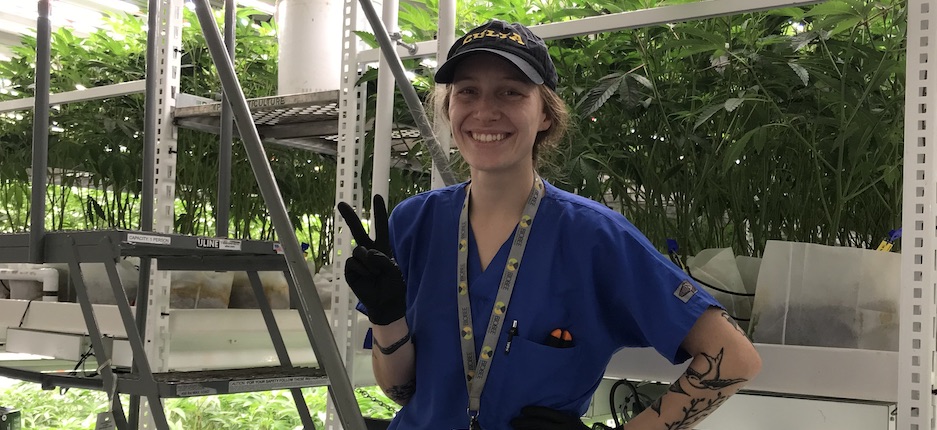Although the majority of Maryland residents support the legalization of cannabis, only 21% believe that cannabis sales generate much needed revenue for the state. Whether their incredulity in the positive impact of cannabis on Maryland’s economy is based on a misinterpretation of available data or lack of information, the numbers paint a very compelling story.
According to a study conducted by Beacon Economics LLC, a California-based independent research and consulting firm, the formation of a medical cannabis program has had a drastic effect on Maryland’s economy. From the creation of over 4,000 jobs to over $21 million in total tax revenue, it’s clear that businesses that manufacture and distribute medical cannabis products have had a positive financial impact.
And with more than half of state tax revenue being spent on education and healthcare initiatives, a boost of $21 million isn’t to be taken lightly.
About the Study
The study, commissioned by the Maryland Wholesale Medical Cannabis Trade Association (CANMD), looked at the direct, indirect and induced economic impacts of both facility investments and operations. The numbers were combined to come up with the total impact, and the outcomes were eye-opening.
Not only do facility investments generate a substantial economic output (approximately $264 million, to be exact), but they contribute to nearly $11.4 million in tax revenue. When operations are added into the mix, those numbers are boosted by nearly $320 million and $10 million, respectively.
Other highlights of the study:
- Operations spending in Maryland by cannabis processing/growing firms accounted for $316.8 million in total economic output, 2,638 jobs and $104.2 million in labor income.
- 72% of employment in the cannabis industry statewide is a direct result of operational needs, meaning workers directly involved in processing, growing and/or both.
- Facility investments in the state generated $264.1 million in total economic output, supported 1,743 jobs and $112.7 million in labor income.
The full analysis, along with an explanation of methodology, can be found here.
Employment in the Cannabis Industry
As the cannabis industry has ramped up in Maryland across the past two years, employment in the industry and in supporting sectors has also expanded.
On December 1, 2017, the day Maryland’s medical cannabis program became fully operational, only 14 growers, 12 processors and nine dispensaries were authorized to operate in the state. Over the next two years, Maryland’s medical cannabis sector had expanded significantly. As of April 2020, there are 17 licensed growers, 17 licensed processors and 92 licensed dispensaries operating in the state. Per the Maryland Medical Cannabis Commission website, 15 growers, 14 processors and 37 dispensaries are pre-approved to operate in the state.
These numbers aren’t an anomaly, either. In the four years since cannabis was legalized in Colorado, total active occupational licenses in the industry skyrocketed from 5,000 in 2014 to just under 40,000 in 2018. Sales in Colorado have since topped $6 billion.
Although employment in the cannabis industry makes up a relatively small share of total employment in Maryland, all signs point towards it growing at a much faster rate than many other sectors in the state.
With a year-over-year sales growth rate of 130% in 2019, and predictions that the industry as a whole will continue to grow, the future is bright for cannabis sales (and subsequent tax revenue) in Maryland.
A Question of Taxes
If you’ve ever wondered if owners of cannabis growing, processing and distribution companies pay higher taxes than other business owners, the answer is a resounding “YES!”
The IRS prohibits the deduction of business and operating expenses for any income derived from “illegal activity”, per Section 280E of the IRS Tax Code. Since the sale of cannabis is still illegal on a federal level, many cannabis businesses pay a higher tax rate than their non-cannabis counterparts. Per documentation from the National Cannabis Industry Association (NCIA), cannabis businesses pay an effective tax rate of over 70%. When compared to 30% for non-cannabis businesses, the difference is striking.
Although there is a record-high support for medical legalization across the United States, recreational legalization on a federal level isn’t likely, at least not anytime soon. This means that cannabis retailers, growers and distributors across the United States will be paying a tax rate that’s 40% higher than their peers, simply for operating in the cannabis industry. That’s millions, if not billions, in additional taxes paid to the federal government each and every year for the foreseeable future.
Don’t Forget About Fees
For many local regulators, taxing cannabis license holders steep fees and taxes is seen as a great way to generate revenue and create jobs. They’re already charging fees to license alcohol, so adding cannabis is a natural progression. Unfortunately, the fees faced by Maryland-based businesses are higher than those based in many other states.
Nonrefundable dispensary fees across the United States average between $1,000 and $5,000 and annual license fees average between $5,000 and $20,000. A quick look at a breakdown of the fees in Maryland shows a large increase from the average.
Application Fees
- Growers and processors: $6,000
- Growers/dispensaries: $11,000
- Dispensaries only: $5,000
Annual License Fees
- Growers: $125,000
- Dispensaries/growers: $165,000
- Processors and dispensaries: $40,000
Whether you liken the excess fees and taxes to extortion or view them as simply the price to pay to operate in a burgeoning market, it’s clear that the application and annual licensing fees faced by Maryland-based cannabis companies far exceed those faced by cannabis operators in other states.
The Impact is Clear
From higher-than-average taxes and licensing fees to boosting employment, one thing is clear: Maryland’s medical cannabis program has boosted the economy through employment, labor income, output and fiscal revenues. And, as a young industry, potential for expansion is vast.
CULTA was one of the first growers, processors and dispensaries allowed to operate in the state legally, and recently opened the East Coast’s first outdoor, commercial cannabis grow facility. We’re proud to not only be advocates for the widespread acceptance of cannabis as medication, but to be contributing to the Maryland economy. As the cannabis industry continues to grow we hope to create even more jobs and tax revenue for the state.




